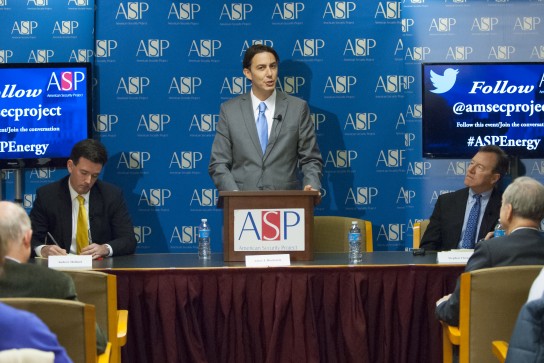
Hochstein: “Energy plays a critical role in national security”
Podcast: Play in new window | Download
Subscribe: Apple Podcasts | RSS
Amos J Hochstein, Special Envoy and Coordinator for International Energy Affairs leading the Bureau of Energy Resources (ENR) at the U.S. Department of State spoke at the American Security Project on Monday about energy policy and the critical role it plays in global and national security. He highlighted three topics.
First, he addressed the role energy plays in both ISIL’s efforts and our efforts to degrade and ultimately destroy ISIL. To address the issue of energy finance, he looked at the full chain of energy – from the moment of field ownership and production to where ISIL gets the money. The coalition air campaigns, he said, are taking away refineries as assets and changing the dynamic of the entire energy chain. The airstrikes “send a warning shot- the wild west days are over.” However, degrading and ultimately destroying ISIL takes time. “It’s remarkable how successful we’ve been in a relatively short period of time. The coalition aspect of this is what makes it so successful.”
Next, he spoke on the changing oil markets and the impact they have on United States and Middle East relations. He rejected the idea that the U.S. is disengaging from the Middle East due to changing oil markets. He stated that while there is a critical shift in the dynamics of the U.S., that does not mean the US is disengaging from the Middle East.
“Our relationship with every country evolves… and when critical parts of our economy change, other parts change as well… this is a partnership, and it will continue to be a partnership.”
Finally, he spoke on the positive role energy has on the Gulf region. “Energy alone will not create geopolitical change, but it can be a great catalyst for geopolitical change.” Citing the warming relationships between Israel and Cyprus, he said oil can be used for international cooperation. It can “foster more security and prosperity. And more prosperity ultimately means more security.”





